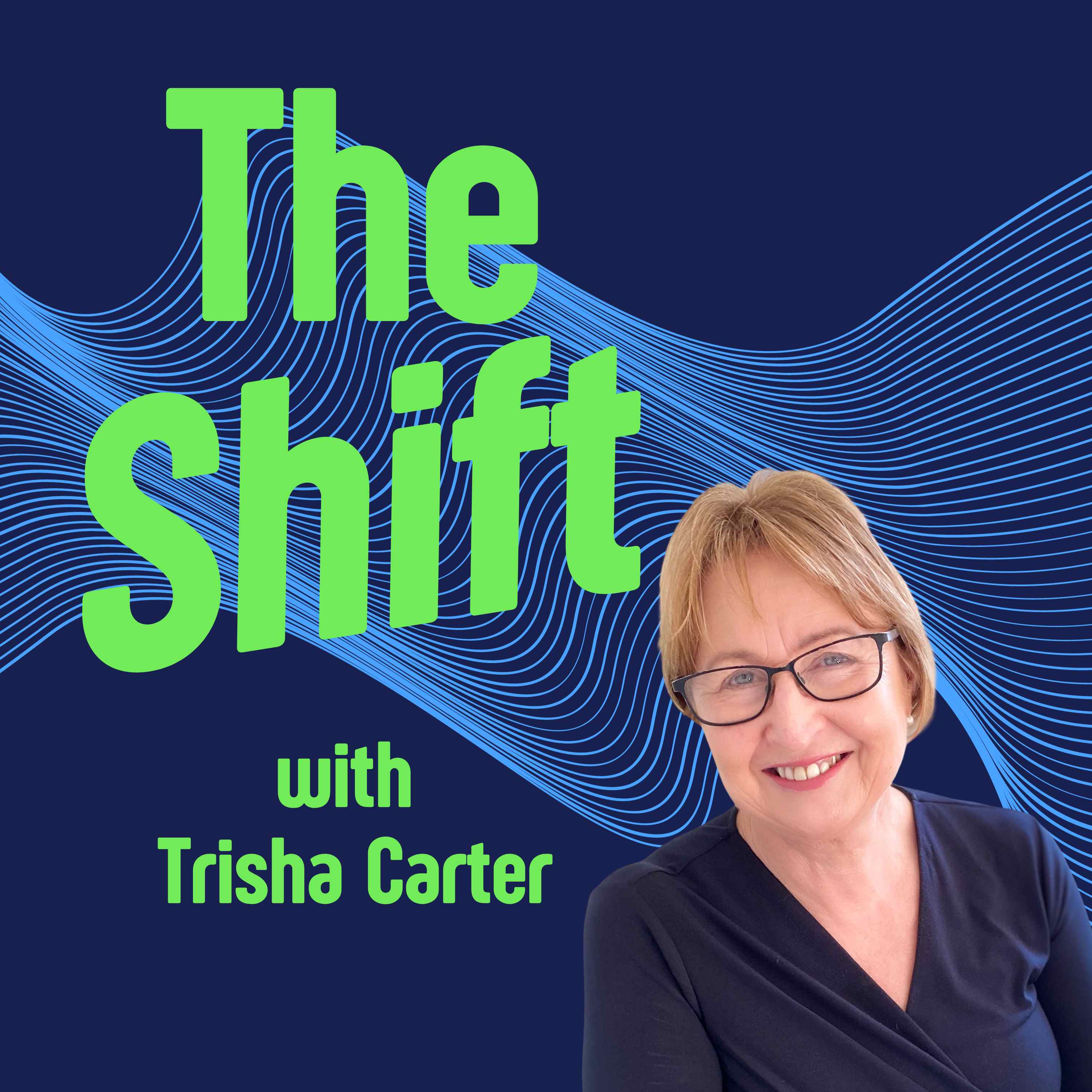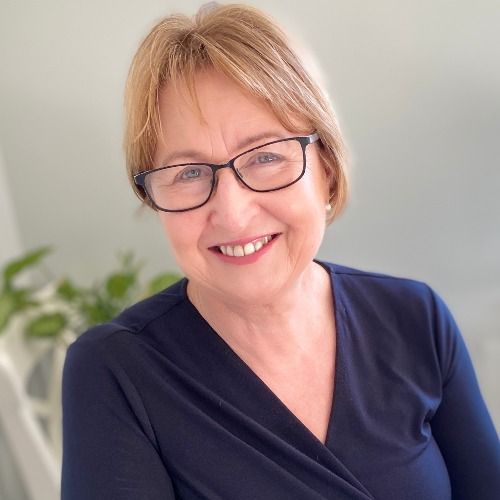Episode 16
Mental Shifts in Tragic Situations
In this episode Trisha discusses recent tragic events in Sydney. She describes people’s reactions and the different perspectives people took. Looking through the lens of learnings from earlier episodes Trisha considers people’s responses. She reflects on the impact of such events on individuals, groups and society and the impact that has on people at work. She encourages all who are working with people, caring for others, to alsoe take care of ourselves in challenging times.
If you want to reach out to Trisha connect with her on Linked in here
In Australia, support is available at Beyond Blue on 1300 22 4636, Lifeline on 13 11 14, 13YARN: 13 92 76 and
Global helplines can be found here https://findahelpline.com/i/iasp
Transcript
I would like to acknowledge the Tharawal people, the Aboriginal people of Australia, whose country I live and work on. I would like to pay my respects to their elders, past, present, and emerging and thank them for sharing their cultural knowledge and awareness with us.
Trisha:Just a warning before we start. This episode contains references to murder and violence. Please listen with care. Hi there everyone. I'm Trisha Carter, an organisational psychologist and explorer of cultural intelligence. I'm on a quest to discover what enables us to see things from different perspectives, especially different cultural perspectives, and why sometimes it's easier than others to experience those moments of awareness.
Trisha:The shifts in thinking. As those of you who have listened to some of the earlier episodes will be aware. Cultural intelligence - The ability to be effective in situations of diversity is made up of four areas motivational, knowledge, metacognitive, behavioural. And there's a strong evidence base that tells us that CQ helps us to operate effectively in situations of diversity.
Trisha:In this podcast, we're focusing on the metacognitive aspect, how we think about our thinking, and my interest is in helping people to shift their thinking when needed. Today we're going to break the usual pattern. I'm not interviewing anyone, and I'm not summarizing from previous interviews. It's been a tough time in Sydney over the past week, and I wanted to speak about the experience from a locals perspective and from how we can use our cultural intelligence in these situations, how we can shift our thinking from fear or anxiety to care and kindness for ourselves and others.
Trisha:For those who aren't aware, there was a mass killing event in a Sydney shopping centre on Saturday. Six people were stabbed to death and a further ten were hospitalized. People responded with shock and horror. This sort of random attack doesn't happen in Australia very often. The people who died were a microcosm of multicultural Australian society, so this touched many communities.
Trisha:The stories were tragic. The mother who asked strangers to save her baby. The security guard who had recently been granted refugee status, who died doing his job. Young women, mothers, a Chinese student who were just shopping on a Saturday afternoon. When something like this happens. It's easy to identify with the victims, to feel for them. We all go shopping often in shopping centres.
Trisha:Many people in Sydney could say they've been to this specific shopping centre at some point. Our brains think it could have been me. And this puts us into a thinking state that's one of fear. Remember from episode eight with Doctor Mark Williams, the neuroscientist, we will be in fight, flight or freeze. Many people turn to social media to check that loved ones were safe and to find out who was involved, and this quickly became toxic as people declare who the attacker was.
Trisha:Depending on the perspective of the person looking at the grainy pictures appearing in social media. He was a Muslim, or he was a Jew, a migrant or a refugee, or he was a foreigner with many different countries listed.
Trisha:This was despite the attacker wearing the Kangaroos jersey. That's the Australian representative rugby league team. You can imagine the results in terms of hate speech that emerged and in terms of hate crimes. People's brains were thinking from the perspective of fear, in the perspective of their in-group and their outgroup. Again, something that Mark spoke about is a natural part of the way our brain has evolved.
Trisha:But it means that people quickly jump to conclusions in a battle situation that might be helpful. But in a social media situation, it isn't. In reality, the police quickly identified the attacker as someone they already knew. He was an Australian born in Queensland. He had been diagnosed with schizophrenia some years ago. This was not classified a terrorist incident, but a case where poor mental health resulted in a situation of horror and terror.
Trisha:You can imagine these heartbreaking news stories about the victims and about the killer was showing up on people's phones. People across Sydney were finding out that they knew someone, or knew someone who knew one of those who had died. Sydney is a small town. People were grieving. Then on Monday, suddenly breaking news. Another random attack. A bishop and a priest was stabbed in his Assyrian Orthodox Church while live streaming a Bible study.
Trisha:As it was livestreamed, the attack was filmed, including the congregation overpowering the teenage attacker. This was shared graphically over many social media platforms. A crowd quickly gathered outside the church, defending or crying for their much loved bishop. They chanted bring him out as they wanted to. They wanted revenge and justice. They attacked the police and paramedics had come to do their work.
Trisha:It took hours to bring a semblance of calm and order to be established. Over 50 police officers were injured and houses and vehicles damaged. This incident has been declared a terrorist attack. At this point, police haven't released details behind that to explain. So speculation and rumour and hate speech is circulating widely again. Thankfully, the bishop is recovering and has today shared that he forgives his attacker and will always pray for him.
Trisha:And he's called for his supporters to be calm and to also forgive. There are many nuances to these events, as they always are. As someone who values my cultural intelligence, I try to ask myself why? What might have motivated people to attack or to respond in the ways they did, and to see some of the nuances that might exist.
Trisha:I try to build my knowledge and learn from history and society and current events, which all shape us in who we are, what we think, and how that might lead to behaviour. My point in telling you all this is because I know if you are following this podcast, you care about people. You care about helping people to see others perspectives.
Trisha:And at times like this, it is hard. Sometimes it's easier to fall into the in-group and outgroup ways of thinking, but instead we want to help people learn and grow and understand others better. We want people to be culturally intelligent. We might be teaching or coaching or helping others in their cultural journeys, or we might be in the middle of our own.
Trisha:To do that, well, we need to take care of ourselves and our own emotions and thinking in difficult situations. We need to do the work of asking ourselves to shift perspectives, and to ask what we might not be seeing. We need to do the work of taking a breath and changing our brains. We need to listen to our body to recognize what it might be telling us.
Trisha:We need to ground ourselves so we can focus in a difficult moment, whether in a team discussion or a group facilitation. And we might need to ask for help if we're overwhelmed to connect with others. Those special people will support and care. I am curious about influencing perspectives at a society level, about changing groupthink. I wonder about how social media and mainstream media, to what extent they shape our perspectives, and about how we can bring people together in society to work for common good.
Trisha:But I'm not sitting in a place where I can go deeper into that right now. Perhaps it will come in future episodes of the podcast, and I look forward to your suggestions of people who can guide us there. Right now I'm working with individuals and groups, mostly in work situations. I care about them and the experience they are having at work.
Trisha:I care that their voices are heard and that they have different perspectives are valued and that they can learn and grow. I care that people work well together, whoever they are, whatever languages they speak, country they come from, or religion they believe in. I posted on LinkedIn this week asking leaders in Sydney to check in with their people, to see how they are, to remind them of company values, which might state the way we should work together and of company supports which might help people in difficult situations.
Trisha:I asked leaders to be mindful of the potential of microaggressions that might come as team members discuss, possibly with stereotypes or judgments, the events that have been happening. And to be prepared to model ways of responding to those in group discussions, and most of all, to take care of themselves. Good leaders, who can lead inclusively. It can help people shift in their thinking at work.
Trisha:Those leaders are valuable. We want to support them in what they do, and hopefully next week we'll return to that discussion with another guest interview. In the meantime, thank you for listening, and please, take care of you. We look forward to joining with you next week on The Shift.

